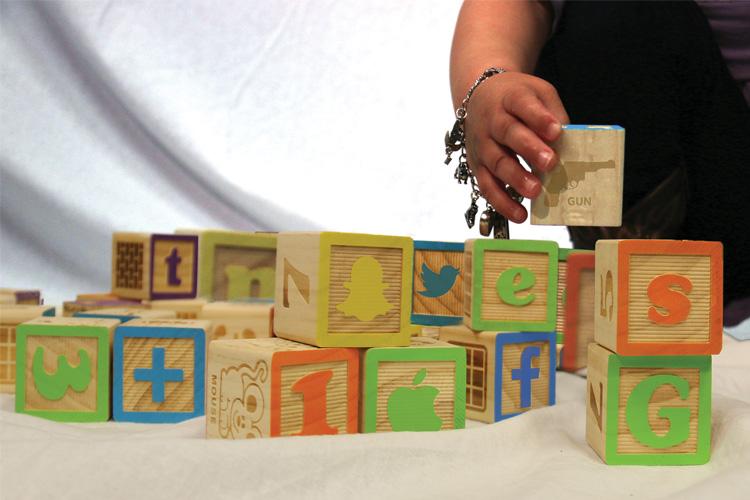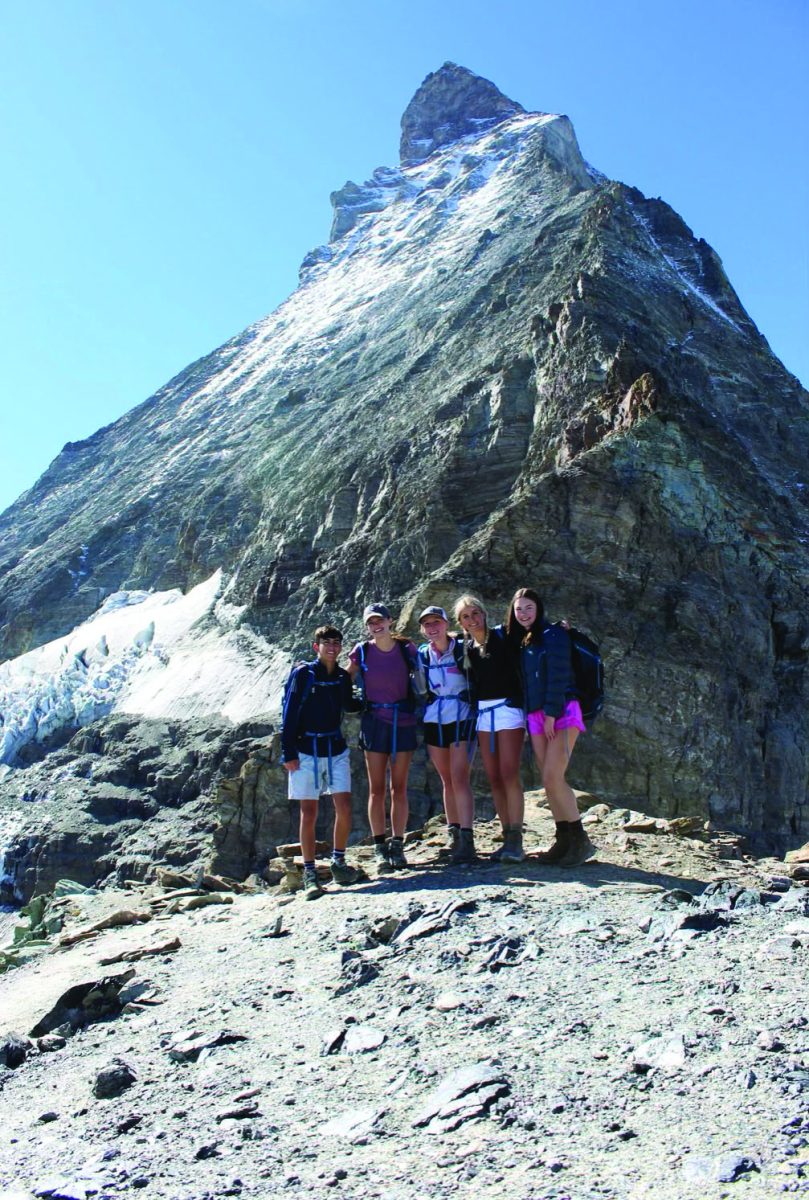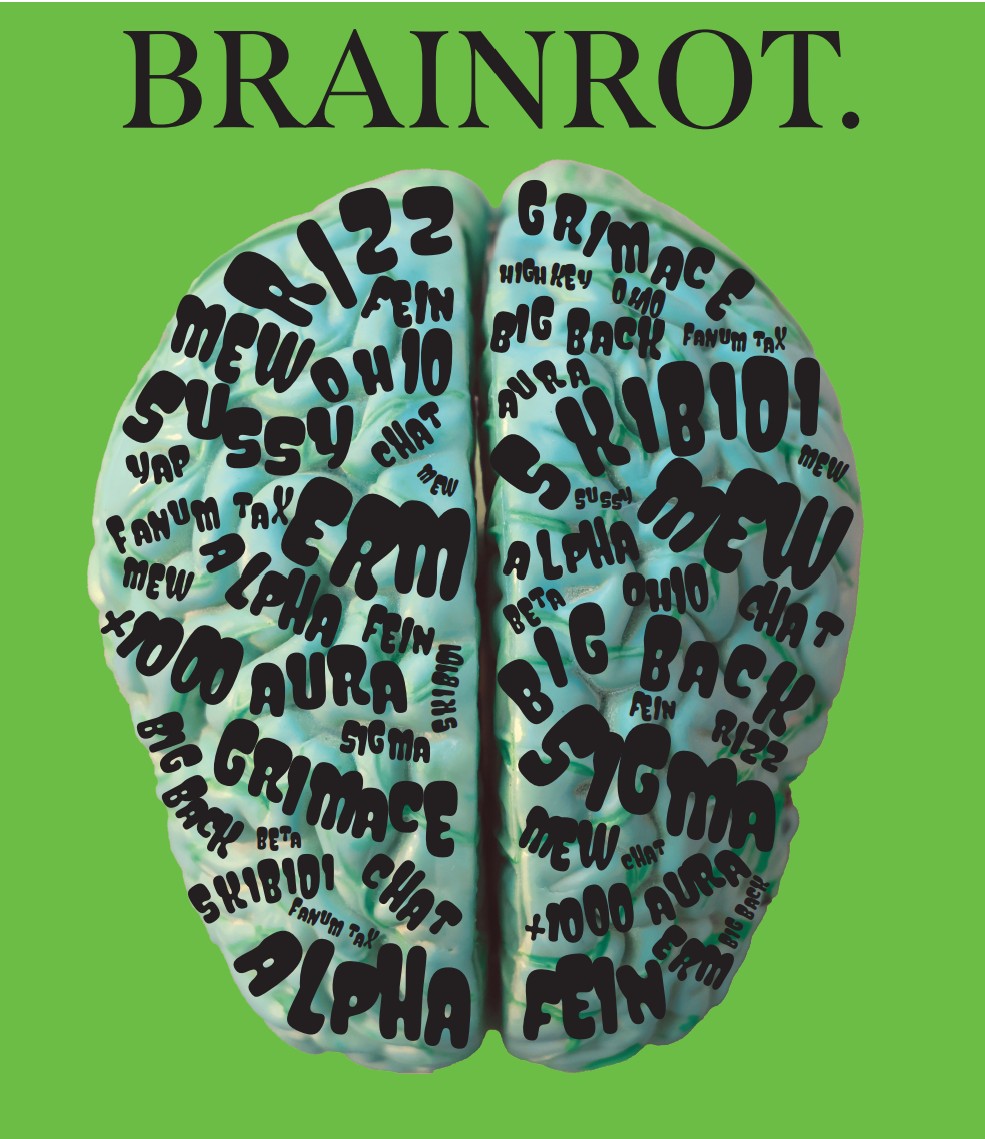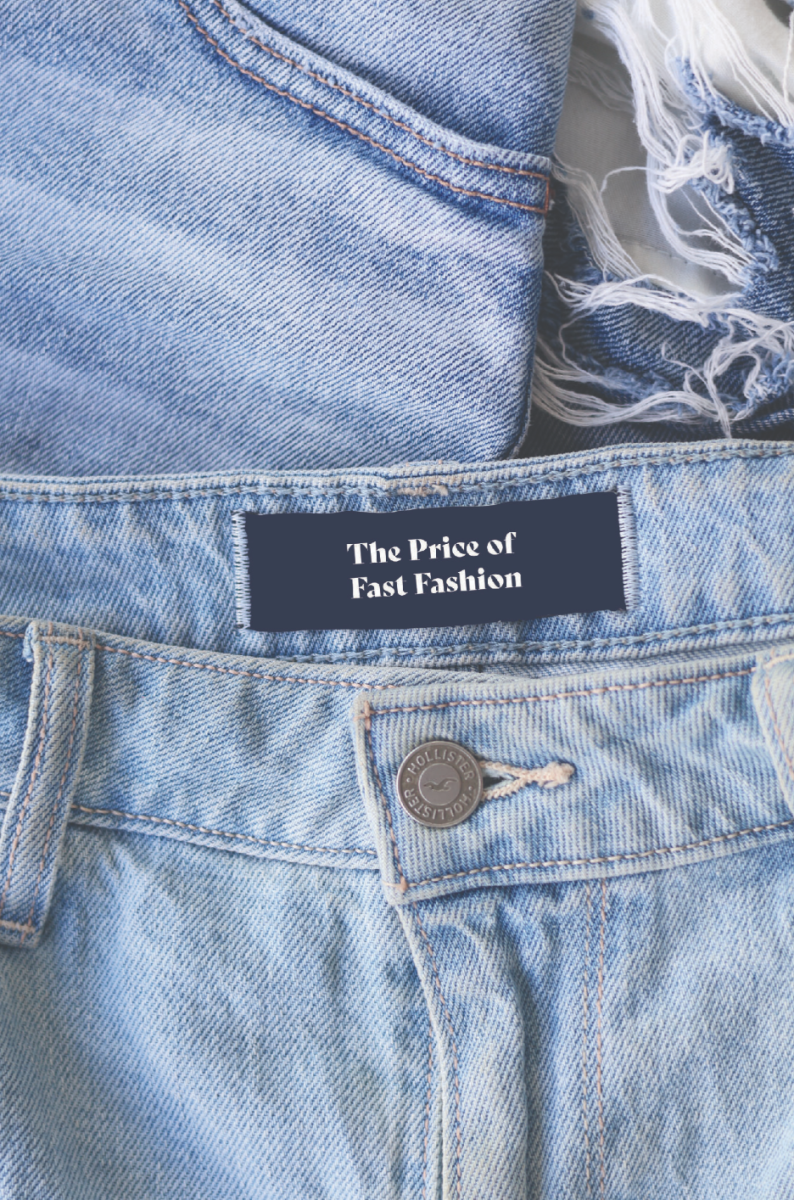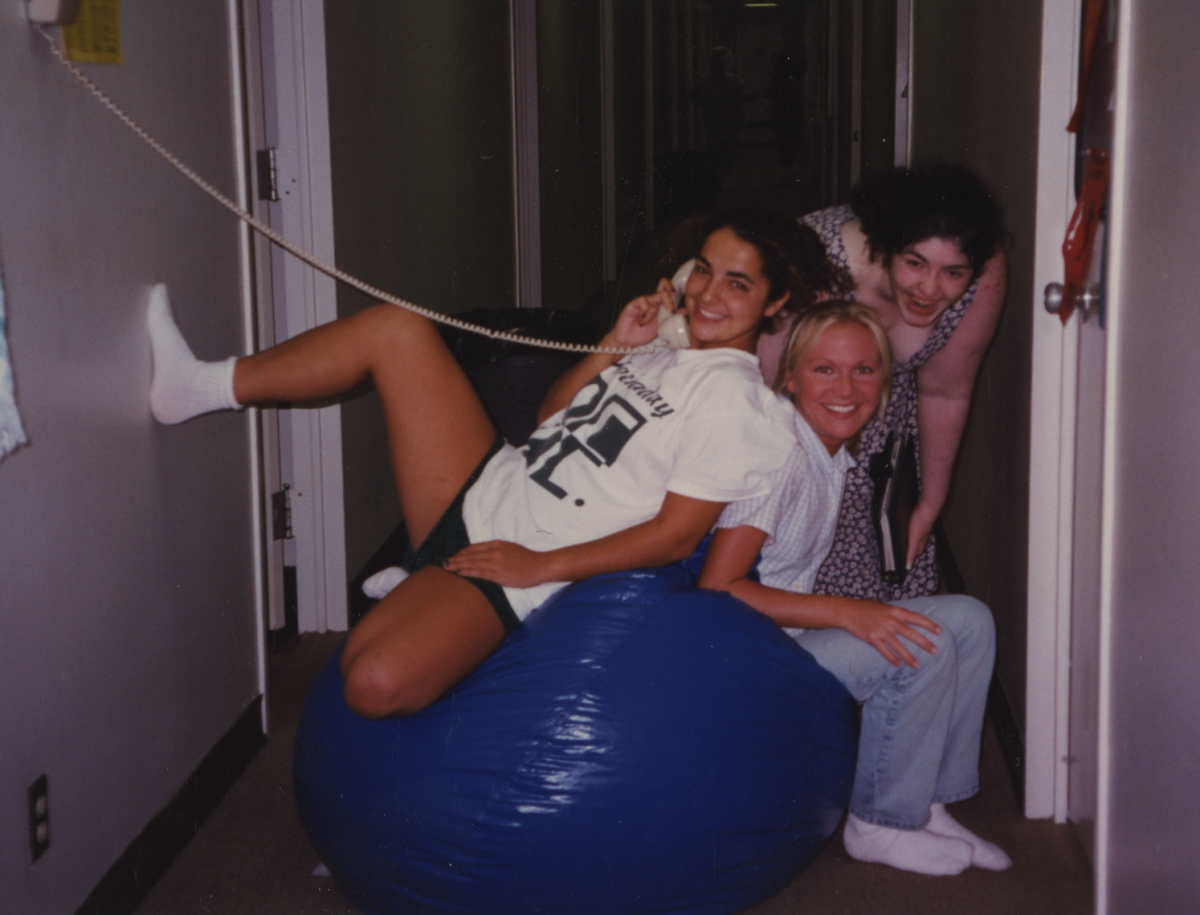She stands in the cold and pouring rain, huddled around other like-minded young men and women who have gathered to support a cause they hold dear to their hearts. Through the dense sea of bodies, she spots a child, no more than 5 years old, perched on her brother’s shoulders and holding a sign that reads, “Enough is Enough.”
Although they may appear to be a mere melee of teenagers armed with limp, handmade signs, they are much more than that. They are the face of Generation Z—a group of outspoken and socially-aware teenagers on the brink of momentous change, and they won’t be silenced.
They have witnessed the destruction of the Twin Towers and mass shootings. But they have also seen the inauguration of the first African American American president and the legalization of gay marriage, and have grown up in a society where the prevalence of technology and social media as skyrocketed. They are no strangers to change. Now, they are the ones fighting for it.
Born roughly in the time frame between 1995 to 2015, Generation Z is the next up-and- coming generation on the current trajectory to change the world. Ever since the turn of the century, certain devastating milestones—such as terrorist attacks, government instability and war—have dictated the course of history. Either way, the world demands change, and Generation Z offers a solution. More than anything else, Generation Z is a body of change makers—those wanting to leave an impact on the world through whatever medium that may be. Senior Paloma Renteria believes that Generation Z is adept at thinking ahead.
“What I notice about Generation Z is that they use whatever resources they have, be it social media or information that previous generations didn’t have access to so young, and they use it to really start thinking really quickly about what they would like to see done in the future,” Renteria said.
It is a common misconception that age correlates with wisdom or knowledge. Generation Z has proved this theory wrong. Gen Zers around the world have clearly demonstrated that, given a cause they are passionate about, they have the potential to be unstoppable catalysts for change.
Generation Z is known for being extremely technologically proficient. One study conducted by Adobe’s Chief Marketing Officer website, a site geared towards “digital marketing strategies,” claimed that “while Millennials use three screens on average, Gen Zers use five: a smart phone, TV, laptop, desktop and iPod/iPad.”
Because of the prevalent role that screens play in Gen Z’s everyday lives, they are often labeled as iGeneration, iGen or Post-Millenials. Junior Nisha Singh recognizes the impact that technology has had on Generation Z and its ability to establish themselves within the world.
“The big thing about Gen Z is being really adept at using these new technologies that sort of just spurred up when we were born or when we were really young, so I think we are all very adept in that language of technology and using that to our advantage,” Singh said.
In addition to learning how to swipe on an iPhone before they could speak, Generation Z has been dubbed as one of the most diverse generations in terms of race, ethnicity and sexuality. With the aid of social media, Gen Zers have been able to expand their horizons and become more educated on current social issues. Renteria views social media as a tool which can be manipulated to Gen Zers advantage.
“One way that I think Generation Z has garnered the power they have is by using social media as a platform to demand change, to highlight injustices that are going on in the world,” Renteria said. “They are very openly sharing their stories and they are using that to their advantage to pressure politicians and the adults who have more power than we do to make these changes that are affecting us.”
Generation Z has one of the most diverse populations, as specifically the number of African Americans, Asian Americans and Hispanics is steadily increasing throughout the years. According to one study, Generation Z alone holds the largest number of Hispanics at 22 percent.
In terms of diversity, Gen Z is much more willing to embrace the LGBTQ+ community. For instance, in a 2016 survey by the J. Walter Thompson Company, “only 48 percent of those 13 to 20 years old described themselves as ‘completely heterosexual.’” They have also grown up in a time that has seen significant wins for the LGBTQ+ community, such as the legalization of gay marriage in 2015.
Despite their actions to bridge the gaps of racial inequality and LGBTQ+ hostility, there are still countless other social injustices that burden our society today. However, Generation Z has clearly demonstrated that they will not sit quietly and let this oppression continue. Within the last few months particularly, the nation has witnessed resistance in the form of protests and marches, sparked by the recent shooting at Marjory Stoneman Douglas High School in Parkland, FL.
How the World Shaped Generation Z
The years leading up to the turn of the century are often thought of as a generally peaceful era. With little global conflict, the United States thrived during the prosperous decade of the 1990s. However, on Sept. 11, 2001 when members of an Islamic rights terrorist, Al-Qaeda, hijacked and crashed four planes, the United States was sent into an age of chaos which it never quite recovered from.
Over the course of the years, America only grew more tumultuous as violence steadily increased. According to a 2017 survey conducted by BBC, 40 percent of Americans said that they owned a gun. Furthermore, in 2016, out of all homicides in the United States, 64 percent were gun-related killings, a grand number compared to 4.5 percent in England and Wales and the 13 percent in Australia.
Ultimately, this increase in gun circulation throughout the nation lead to negative consequences. As of March 24, there have already been 17 school shootings in 2018.
However, the new millenium also saw the first African American elected as president of the United States, an act that, in and of itself, broke racial boundaries that had persisted in America for hundreds of years.
And gay marriage was legalized by the Supreme Court in 2015. This action single handedly paved the way for legalized support for LGBTQ+ rights in America and set a precedent towards the guarantee of full equality for all American citizens.
Ultimately, the new millennium brought about an age of change—both positive and negative. Never before had the country been lead by an African American president. Never before had the act of gay marriage been normalized to such a degree. On the other hand, 9/11 is arguably one of the most devastating terrorist attacks that has ever been executed on American turf, and death by guns has never spiked as high.
Because Generation Z has grown up in a time when chaos has consistently dictated the state of our nation, Gen Z is more adept at handling this chaos. Singh backs this claim, as she believe that this state of disorder has worked to the advantage of Gen Z.
“Gen Z is this new generation that has sort of popped up in all of this technological, social, political chaos that came with the new millennium. We don’t know a world beyond this and we don’t know a world besides this,” Singh said. “Contrary to popular opinion I think we are one of the strongest generations because we have had to navigate through this entirely new world without guidance that is totally applicable.”
Online Presence
The influence and normalization of technology in Gen Z’s lives is significant; you would be hard-pressed to find a teenager without a phone, computer or various social media accounts. Tablet devices such as Amazon’s Kindle Fire for Kids or Apple’s new iPad geared towards students bolster the prevalent usage of technology in kids’ lives.
Many people from older generations, such as baby boomers and Gen X, are baffled by the heightened importance of social media in Gen Z’s lives. How many times have you heard the phrase “it’s because of those phones” uttered by a disapproving adult? But the role of social media in Gen Z’s lives shows the prevalence of interconnectedness between members of Gen Z throughout the world.
Certain social media platforms such as Snapchat, Instagram and YouTube bring more personal, face-to-face interactions between members of society. According to a survey completed by The Next Generation of People Performance, a company that focuses on “improving performance in a multigenerational workforce,” 56 percent of respondents use Instagram and Snapchat daily, and 71 percent watch YouTube daily, proving that Gen Z is “a generation that likes to see and hear people, even if those people are halfway around the world.”
According to Entrepreneur, a magazine directed towards entrepreneurship and business management, 42 percent of Gen Z’ers report that “what they read on social platforms directly influences how they feel and think.” Sophomore Kirsten Kirk, who doesn’t have any social media accounts, feels that not having social media keeps her away from the “negative influences of social media.”
“I think that social media makes people feel like they have to fit a certain standard, and especially young women who feel like they have to look this way and act this way,” Kirk said. “They have to be strong but not bossy, they have to be determined but not stubborn, and I think social media is that.”
Yet social media also gives teenagers a chance to connect with their favorite celebrities, political activists and influencers. Renteria uses social media to follow her inspirations such as Yara Shahidi and Emma González.
“So a lot of the celebrities who I follow are people who inspire me, and a lot of them are younger,” Renteria said. “One of my favorites is Yara Shahidi, and she is just a little bit older than I am, and it is so cool because she started spearheading this movement called 18×18 and that is all about getting young people to vote and getting Generation Z involved in politics.”
With the world in a state of turmoil and openness about gun control, Renteria believes that social media is a way for people to share the truth.
“Generations past could not necessarily record encounters with police men or document school shootings in real time, right?” Renteria said. “People are recording these things. They are very openly sharing their stories, and they are using that to their advantage to pressure politicians and the adults who have more power than we do to make these changes that are affecting us.”
World Impact
Making up 25 percent of the world’s population and outnumbering Millennials by almost a million, Generation Z is a driving force in the world today.
Because Generation Z has been exposed to many devastating events in American history, their eyes have been opened from the very beginning.
They are also characterized by many scholars as those who carry the weight of saving the world and fixing our past mistakes on their small shoulders. However, although Upper School counselor Judy Ware sees potential within Generation Z, she does not believe the entire responsibility is up to them.
“I think that because Generation Z was born into a period of crisis and have seen extremism their whole lives—as long as they have been able to read the newspaper or watch the news—they have been exposed to terrorism and other forms of man’s inhumanity to man,” Ware said. “Do I think that it is their job to clean that up? I think that it is everyone’s job to clean that up. Making change is up to all of us, it is not just on Generation Z’s shoulders.”
Due to the rise in higher education applicants and the more rigorous college application process, Generation Z is said to focus more on their academic records, college and future careers from a young age. They understand how hard finding a job and going to college is for their generation, causing them to attempt to stand out as early as elementary school.
Not only do they strive for academic excellence, but they are also very interested in volunteer work to boost their resume for the college application process, as well as using these times as social events. With this huge increase in community service interest, it is estimated that 26 percent of 16 to 19 year olds already volunteer on a regular basis, and 79 percent of teens plan to volunteer.
But community service and boosting their resume are not the only two things this internet-savvy and forward-thinking generation is known for. One defining characteristic that sets Generation Z apart is their outspoken and unapologetic attitude towards today’s most pressing issues, such as gun violence and police brutality, along with countless others.
Setting an example for today’s young and even older generations would be the Parkland activists. When these students’ school suffered from one of the most deadly school shootings in the history of the United States, the brave teenagers took a stand against our current government and its relaxed gun laws.
Students Emma González, David Hogg, Cameron Kasky, Alex Wind and Jaclyn Corin were on the cover of a recent Time Magazine discussing gun violence in America and the students who were trying to combat it. These remarkable students organized March for Our Lives, which was held on March 24 in D.C. and other various locations around the country. There, protesters, particularly youths, rallied for support of firearm safety legislation to fight for a cause that they are passionate about.
As the American public watches these activists on the major television networks and broadcasted across the globe, some forget that these outspoken leaders grew up in a technological, post 9/11 world.
Renteria founded a program called Powerful Protagonist, which intertwines “positive psychology and creative writing,” and teaches it to girls who are about to enter middle school. She “use[s] the story to explain how we can see our lives and ourselves, and [her] end goal is to work with these students to build confidence, make positive change and to become more academically prepared for the years ahead of them.”
She is also intrigued by the Parkland students and their influence on our government and society.
“I’ve been following these movements that are really centered around young people, so I think that the politicians that we have in power are really feeling the pressure to appease voters, who are 18, 19, 20 years old,” Renteria said.
Senior Shelby Schultz is another one of the many young adults inspired by the Parkland activists. Schultz is a member of the Hockaday Film Department and uses films to advocate for issues that she feels need to be addressed.
“Film is one of the things that is able to influence our generation, because a lot of the times we don’t have the attention span to read an article, but a video can give you a sense of being in someone else’s shoes and understanding other people,” Schultz said.
Schultz’s film philosophy resembles the core Generation Z values in the sense that she values featuring diverse roles within her films.
“What I’m really interested in is including more diversity in film. There’s not a lot of strong women, and there’s not a lot of minority representation in film,” Schultz said. “What I’m really focused in is making sure that more of our country is represented in film, not just the group that’s being represented now. I think it’s really starting to change, which is exciting.”
Another Generation Z Hockaday student that is making a difference in our ever-changing world is junior Charlsie Doan. Doan created her own baking company, the Cookie Angel, which she founded while struggling with an eating disorder. On her website, she states that “baking literally saved [her] life.”
“I think Gen Z is a group of people that are very active and socially conscious and aware. For me, growing up with a disability, I am passionate about the idea that different doesn’t have to mean bad,” Doan said.
Bill Schroer, founder of the WJSchroer company, a “change agent working to assist corporations, communities, school districts and other organizations change behavior through changes in attitudes, belief systems and values.” Schroer also specializes in generational marketing. He has studied the behavior of Gen Z and recognizes the potential that they possess.
“Generation Z is more grounded and has a more down-to-earth approach to the world and the world’s problems,” Schroer said. “And as a result, I think they have the potential to have huge impact. The world is their oyster. Because if they take that open and fresh view, then there is lots of things of things in this country that need to be fixed or changed, and they would have the potential to do it.”

